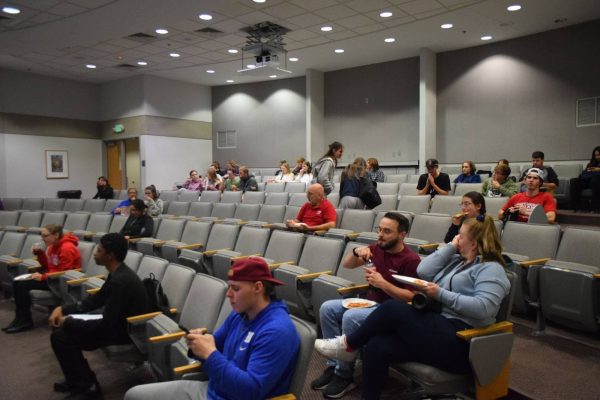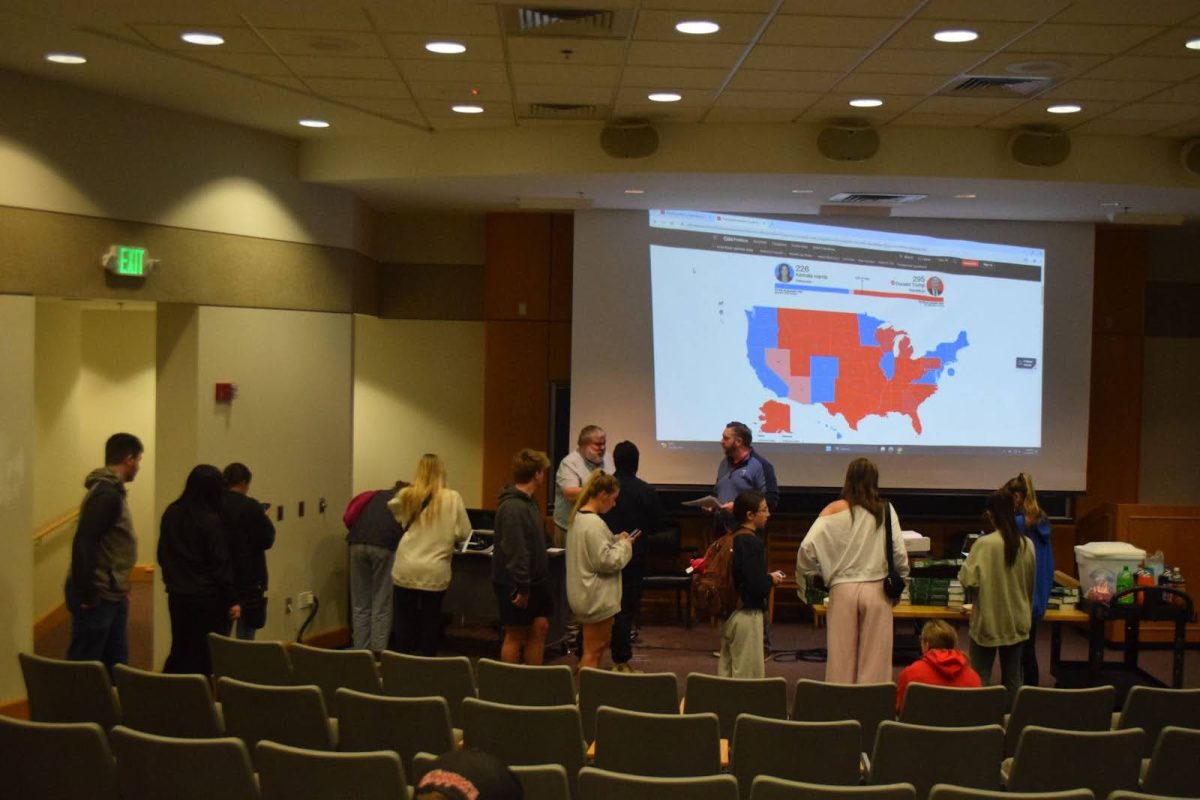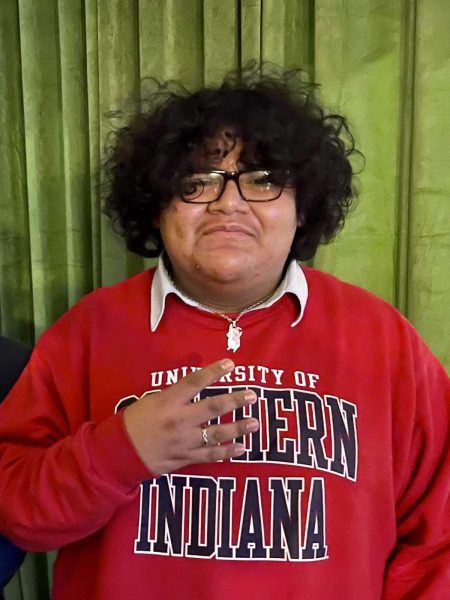The Department of Political Science, Public Administration and Philosophy held an event to analyze the results of the 2024 election in Kleymeyer Hall Thursday at the College of Liberal Arts. Vice President Kamala Harris, the Democratic candidate, conceded the election to former President Donald Trump, the Republican candidate, Nov. 6.
The post-election analysis event allowed students to discuss and understand the results.
During their presentation, Matta Hanka, professor of political science, and Nicholas LaRowe, associate professor of political science, noted that Harris did not visit red states in contrast to Trump, who campaigned in blue states.
Cole Barnett, sophomore political science and psychology double major, said he attended the event because it was an “interesting election.”
“It didn’t go the way I wanted it to, but I think the Democratic Party has a lot to learn going forward if they want to win these elections,” he said.
Barnett said he wanted to analyze “the ways Kamala’s marketing failed to get the attention of working-class people.”
“I think she really failed a lot of people,” he said.

Hanka said the Democrats were hurt by their “unwillingness to go into territories that are unfamiliar and unfriendly to get votes.”
“Trump went to New York,” Hanka said. “Trump went to Illinois. Trump went to pro-blue states to get support. You didn’t see a lot of Harris going to very heavily Republican areas to counter both.”
At the time of the event, Trump’s win was 312 to 226 with Arizona and Nevada still counting their votes. It was the first time in 20 years that a Republican had won the race with the popular vote.
“You have a popular vote victory of 4.5 million voters, so roughly about a win by over 3%,” Hanka said.
The presenters mentioned a few challenges regarding Harris defining who she was without Biden since she stepped up at the Demoncrats’ nominee for the presidency. Hanka said she had no time to clarify the difference between his plan and her own.
Another topic brought to attention by Hanka at the discussion was the Democratic Party “overplaying the assault on democracy.” Meaning, that if Trump were to win, the democratic system would be over.
Compared to Trump’s economic question to citizens, “Are you better off than you were four years ago?”
Hanka said most Americans do not believe they are better off economically now than they were four years ago. This is an issue Hanka thinks that Harris gets defensive about because it is an attack on policies that she is trying to promote and support.
They also discussed what Trump’s political agenda, and what his second term might look like. According to Hanka and LaRowe, items on Trump’s agenda include tax cuts, deportation operations, reducing certain regulations and privatized health care.
Hanka said Trump can control Congress to have his agenda approved.
At the end of their presentation, Hanka and LaRowe opened the floor to anyone interested in asking questions or adding to the conversation.
Trump’s inauguration will be held Jan. 20. President Joe Biden’s administration have notified the Trump administration that it will commit to a peaceful transfer of power.



